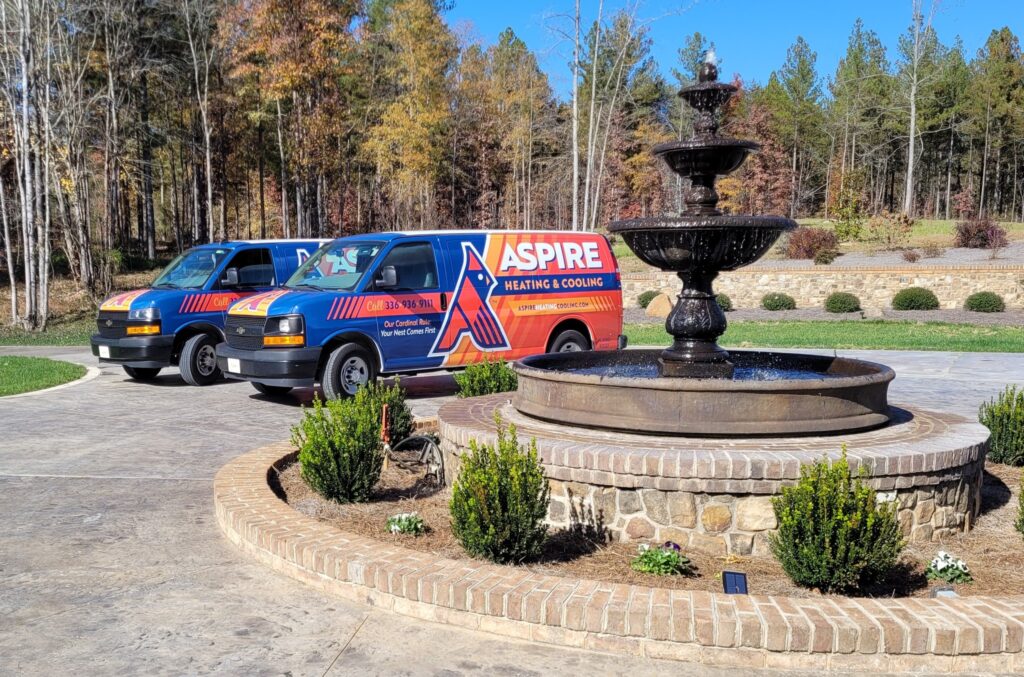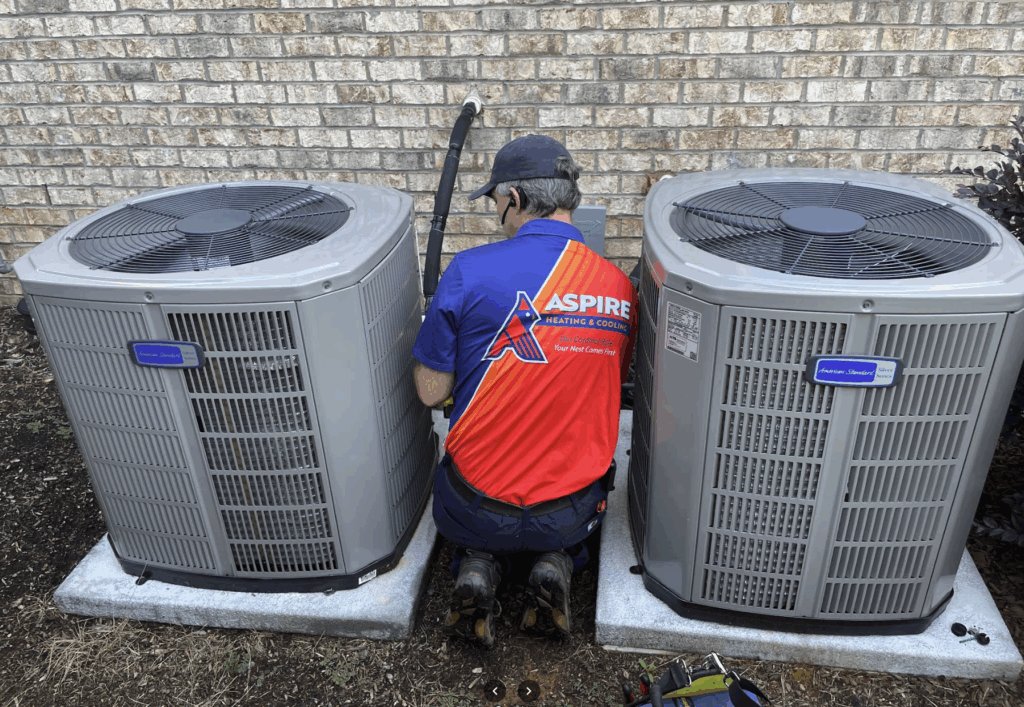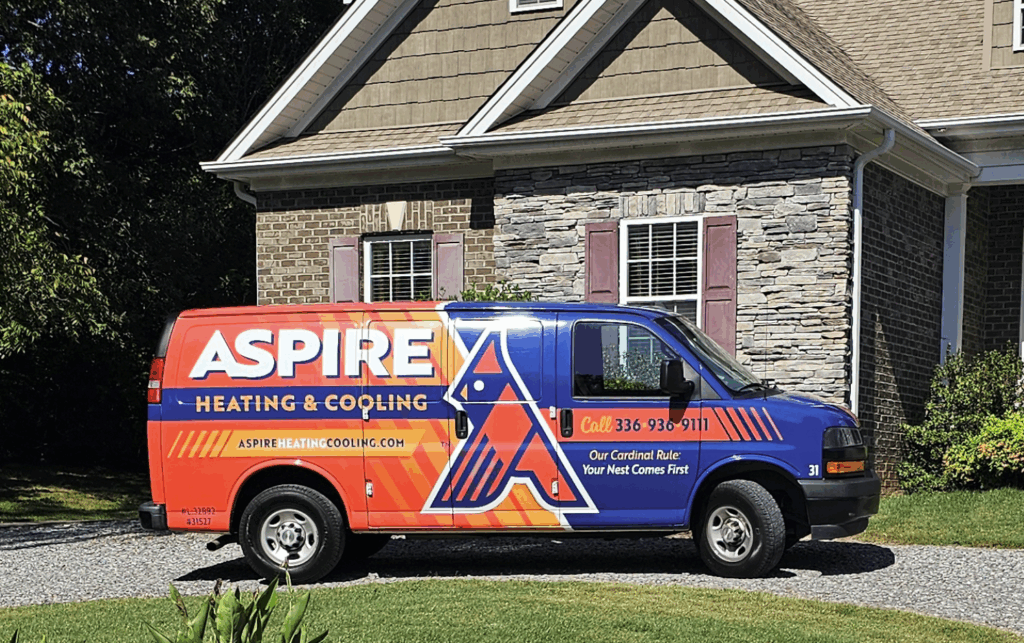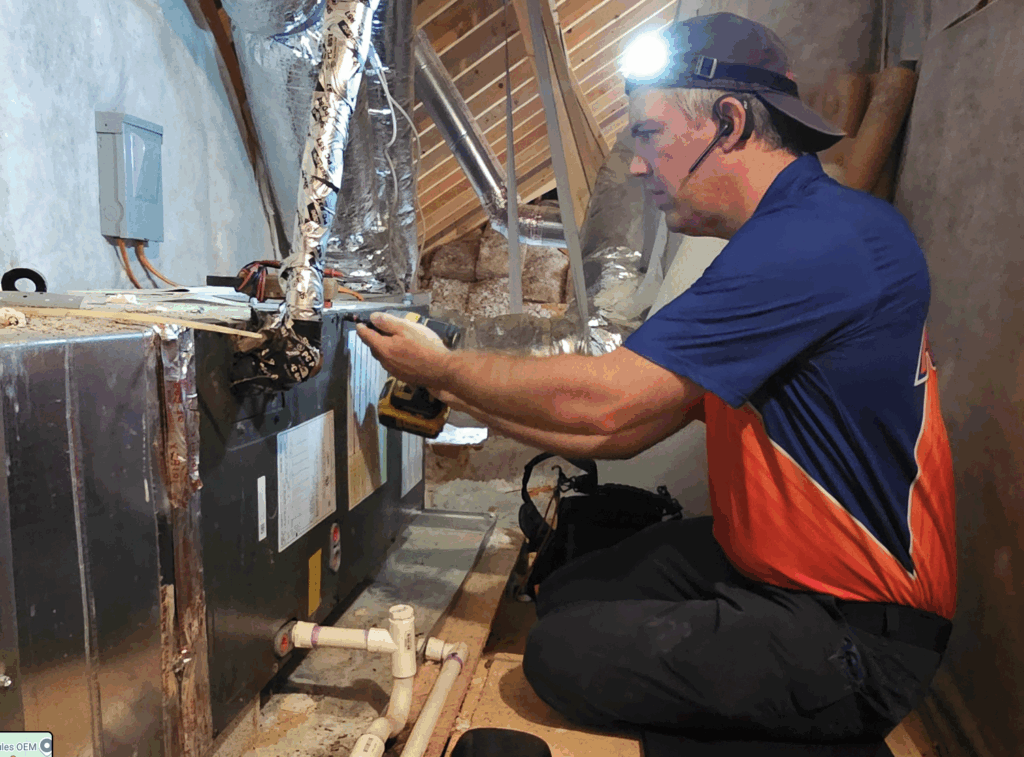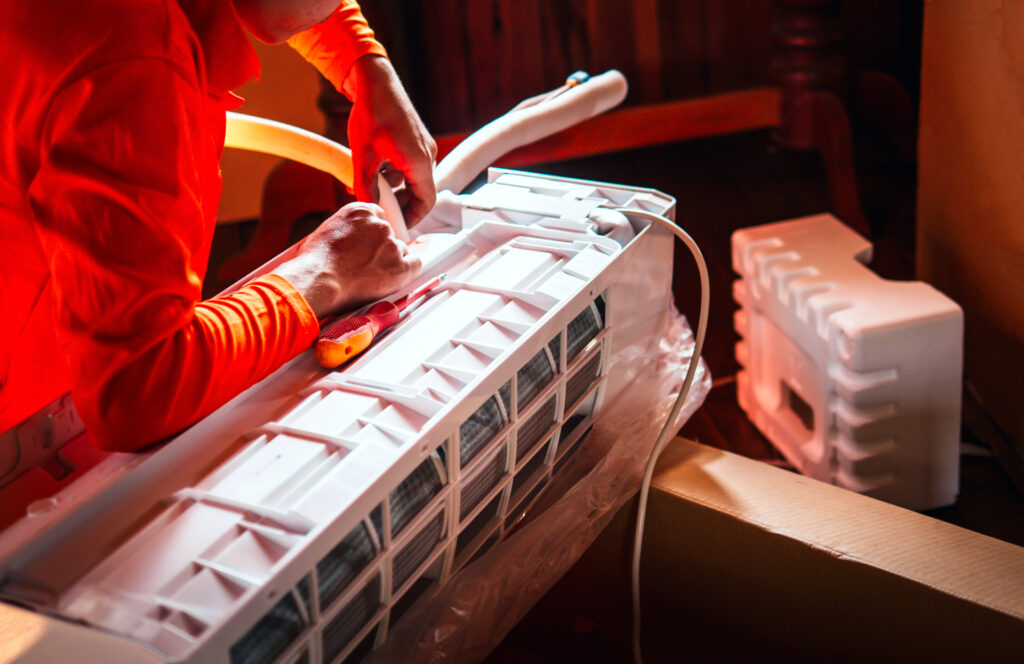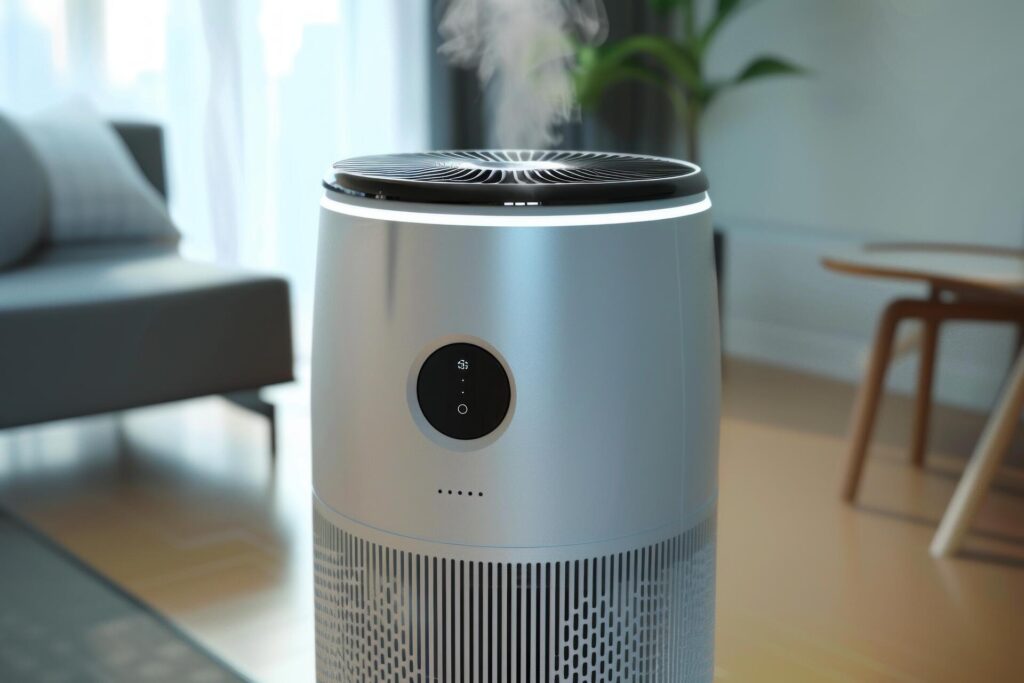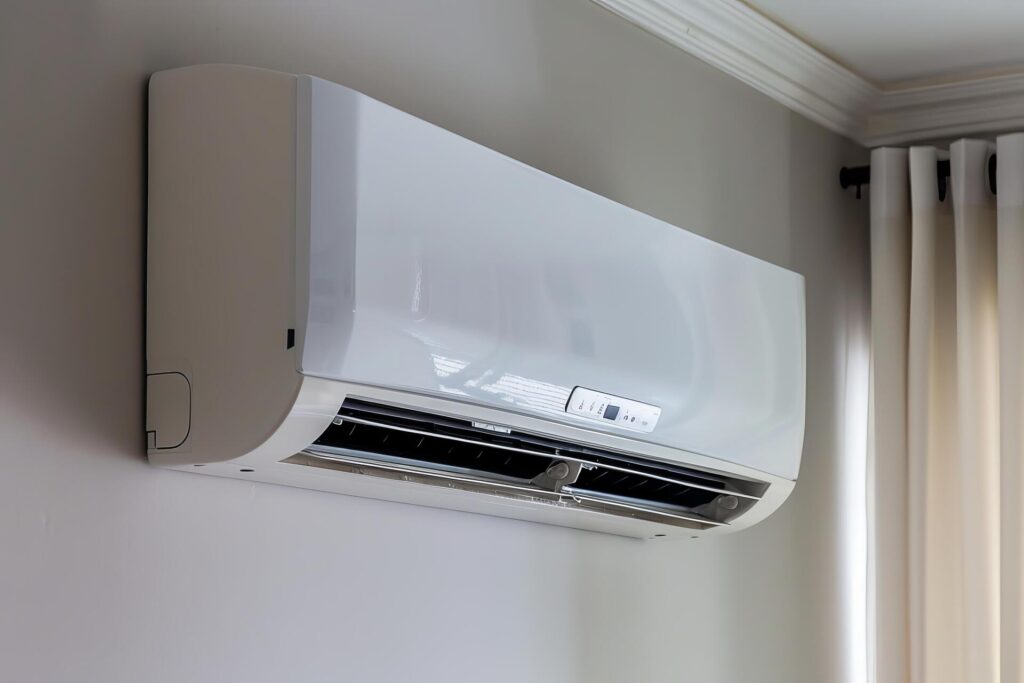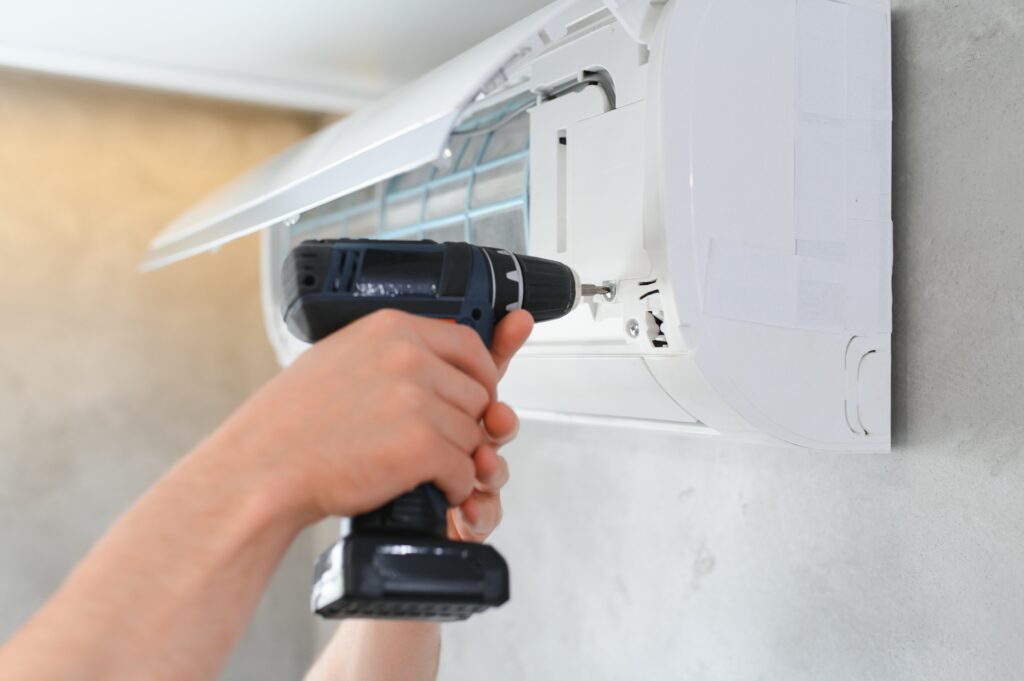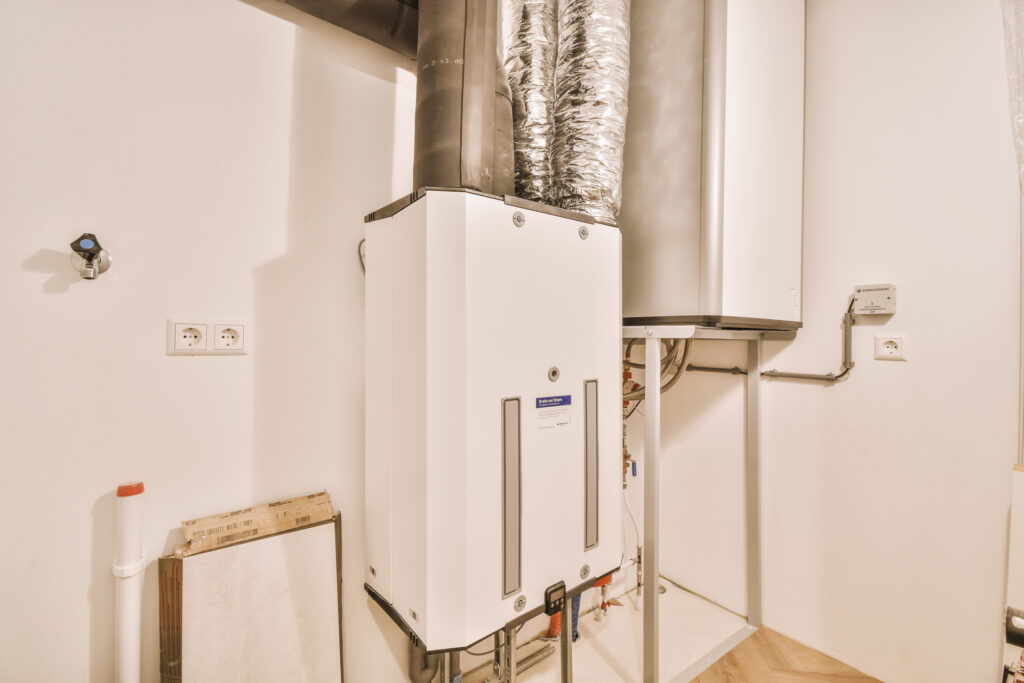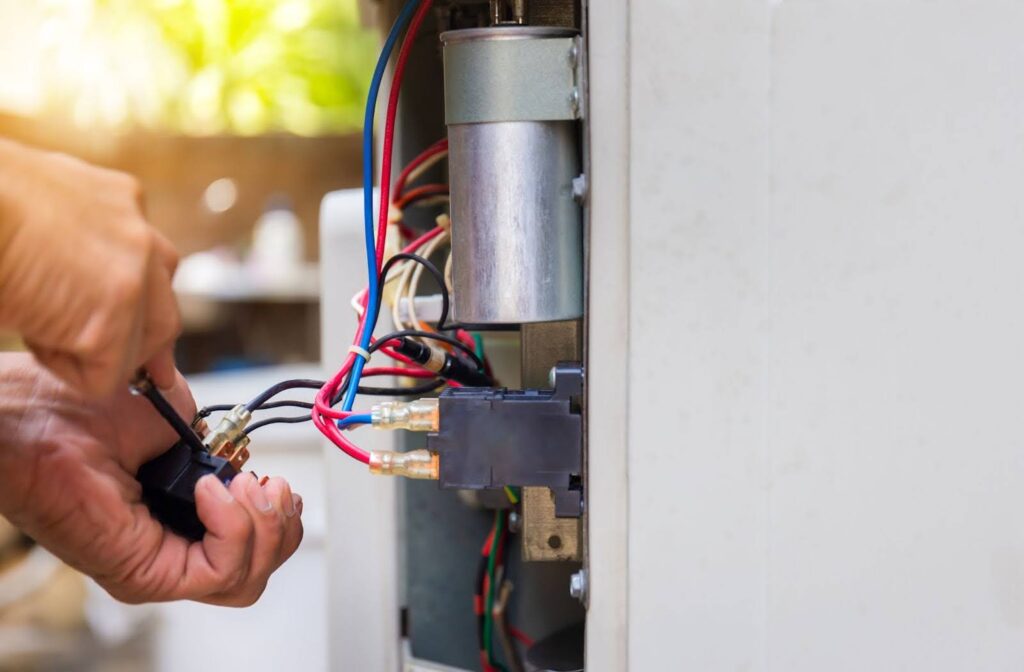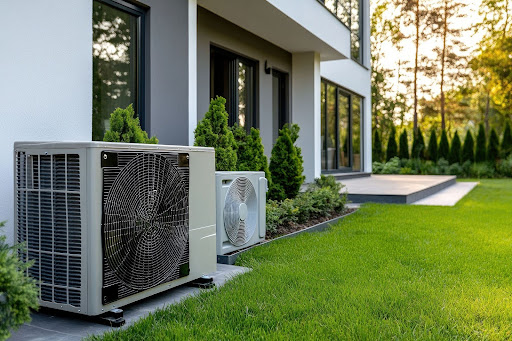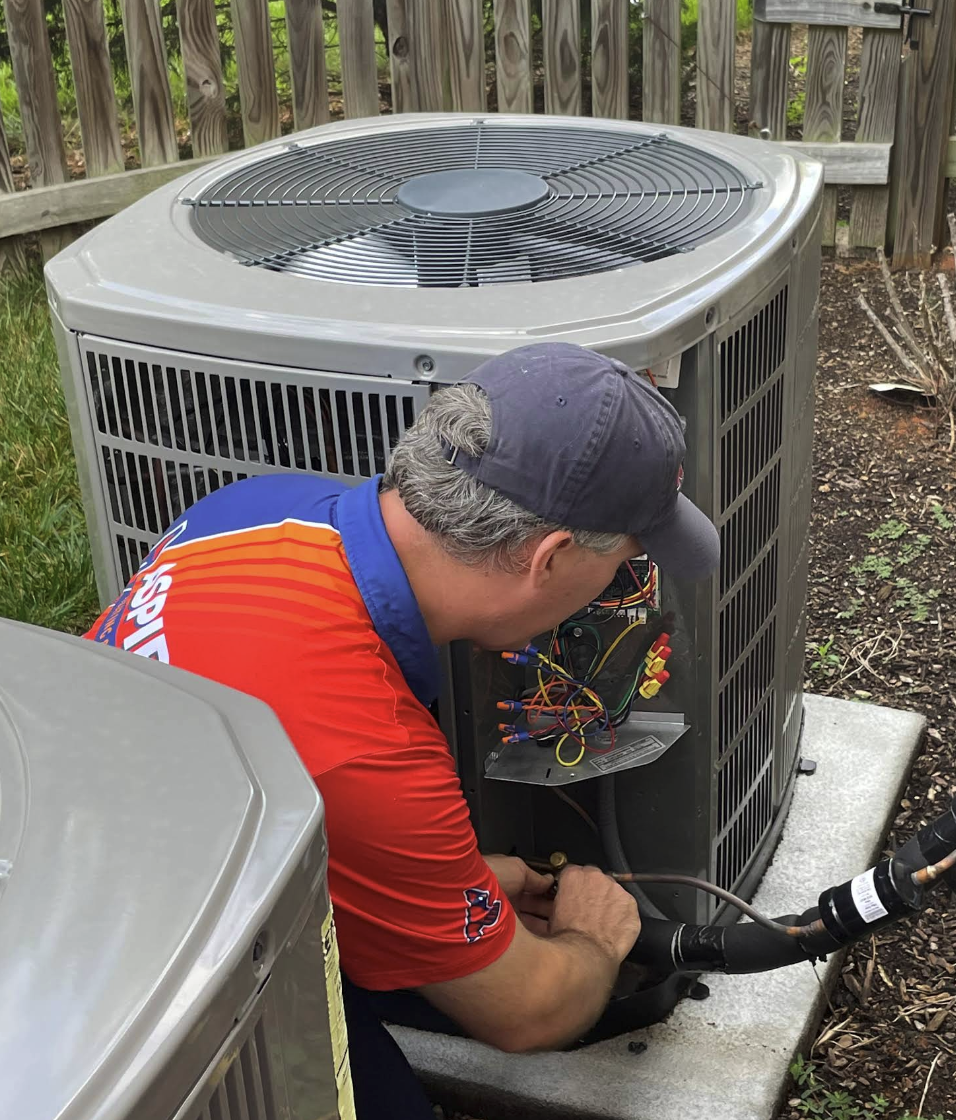Ensuring the efficiency and longevity of HVAC systems is crucial for homeowners, particularly in regions like North Carolina’s Piedmont/Triad area. This region, which includes cities such as Clemmons, Winston-Salem, and High Point, experiences significant seasonal changes that impact HVAC system performance. Fluctuations in temperature and humidity require proactive maintenance to achieve energy savings and improve indoor air quality.
Spring Preparations
Spring offers an excellent opportunity to ready HVAC systems for the impending warm weather. Key tasks include cleaning or replacing air filters and inspecting ductwork for any leaks or blockages. It’s important to check and recalibrate thermostat settings to ensure optimal performance. The outdoor unit should also be inspected and cleaned, with debris removed to maintain proper airflow. Regularly changing air filters can significantly enhance system efficiency and air quality.
Summer Maintenance
As summer draws near, it becomes necessary to check refrigerant levels and inspect the cooling system for leaks. Clearing the condensate drain is crucial to prevent moisture buildup, which can lead to mold and other issues. A professional inspection of electrical components and connections is vital to avoid malfunctions. The high humidity levels typical of North Carolina summers can strain HVAC systems, making these maintenance tasks even more critical.
The Role of Humidity
Humidity plays a significant role in the performance of HVAC systems during the summer. High humidity levels can lead to increased energy consumption and reduced comfort levels in homes. By ensuring proper maintenance and addressing humidity-related issues, homeowners can maintain a comfortable indoor environment.
Professional Inspections
Professional inspections during the summer are essential to ensure all components of the HVAC system are functioning properly. Technicians can identify potential issues early, preventing costly repairs and ensuring the system operates efficiently throughout the season.
Energy Efficiency Tips
To enhance energy efficiency during the summer, homeowners can utilize programmable thermostats and ensure their homes are well-insulated. These measures can help reduce energy consumption and lower utility bills while maintaining a comfortable indoor climate.
Fall Tune-Ups
Fall is an ideal time to schedule a professional heating system tune-up before the winter chill arrives. This includes cleaning the heat exchanger and checking the burner and ignition system to ensure smooth operation. Testing carbon monoxide detectors is critical for safety, as carbon monoxide can pose a silent threat in homes.
Preparing for Winter
Preparing the HVAC system for winter involves more than just a professional tune-up. Homeowners should also ensure that all heating components are in good working order and that any potential issues are addressed before the cold weather sets in.
Safety Considerations
Safety is a primary concern when preparing HVAC systems for winter. Ensuring that carbon monoxide detectors are functional and that heating systems are properly maintained can prevent dangerous situations and provide peace of mind.
Cost-Effective Measures
Fall is also a good time to implement cost-effective measures to enhance heating efficiency. Sealing drafts, insulating pipes, and ensuring vents are unobstructed can all contribute to reduced energy consumption and lower heating costs.
Winter Maintenance
During the winter months, regular air filter checks and changes are necessary due to increased usage. Checking for drafts and sealing leaks helps maintain heating efficiency. Clear vents and registers allow unobstructed airflow, which is essential for effective heating. Monitoring energy bills for unusual spikes can indicate potential system issues that need attention.
Addressing Common Issues
Winter can bring about specific challenges for HVAC systems, such as frozen pipes or increased energy consumption. Addressing these issues promptly can prevent more significant problems and ensure the system operates efficiently throughout the season.
Importance of Air Quality
Maintaining good indoor air quality is particularly important during the winter when homes are often sealed against the cold. Regular maintenance and proper ventilation can help ensure a healthy indoor environment for all occupants.
Monitoring System Performance
Homeowners should remain vigilant about their HVAC system’s performance during the winter. Any unusual noises or changes in heating efficiency should be addressed promptly to prevent further complications.
Tailored Maintenance Strategies
The specific climate of the Piedmont/Triad area influences HVAC maintenance schedules. Seasonal temperature fluctuations and humidity levels pose challenges, requiring tailored maintenance strategies. For example, the mild winters and hot, humid summers in this region necessitate different approaches to maintaining HVAC systems.
Regional Considerations
Understanding the regional climate and its impact on HVAC systems is crucial for effective maintenance. Tailoring strategies to address specific challenges can help ensure optimal system performance year-round.
DIY Maintenance Tasks
Homeowners can safely perform simple DIY maintenance tasks, such as changing air filters and clearing debris around outdoor units. DIY maintenance has its limitations, and improper handling can lead to issues. Professional assistance is recommended for more complex tasks.
Professional vs. DIY
Knowing when to call a professional is crucial for maintaining HVAC systems. Signs such as unusual noises or inconsistent temperatures indicate the need for professional service. Regular professional maintenance can prevent costly repairs and extend the life of HVAC systems.
Choosing the Right HVAC Contractor
Selecting a reputable HVAC contractor with local expertise is important. Look for service providers with positive customer reviews and relevant certifications to ensure quality service. A knowledgeable contractor can offer valuable insights and recommendations for maintaining HVAC systems effectively.
Evaluating Contractors
When choosing an HVAC contractor, homeowners should evaluate their credentials, experience, and customer feedback. A thorough evaluation can help ensure that the chosen contractor is capable of providing high-quality service.
Importance of Local Expertise
Local expertise is particularly valuable when it comes to HVAC maintenance. Contractors familiar with the regional climate and its challenges can offer tailored solutions that address specific needs effectively.
Building Long-Term Relationships
Establishing a long-term relationship with a trusted HVAC contractor can provide peace of mind and ensure consistent, reliable service. Regular maintenance and prompt repairs can help extend the lifespan of HVAC systems and improve overall efficiency.
Regular seasonal maintenance of HVAC systems is essential for ensuring optimal performance, energy efficiency, and indoor air quality in North Carolina’s Piedmont/Triad area. By understanding the impact of the local climate and knowing when to seek professional help, homeowners can keep their HVAC systems running smoothly year-round. Proactive maintenance not only prevents costly repairs but also contributes to a comfortable and healthy living environment.
For expert HVAC maintenance and repair services, contact Aspire Heating & Cooling today. Our team of professionals is dedicated to ensuring your HVAC systems operate efficiently and effectively throughout the year.

